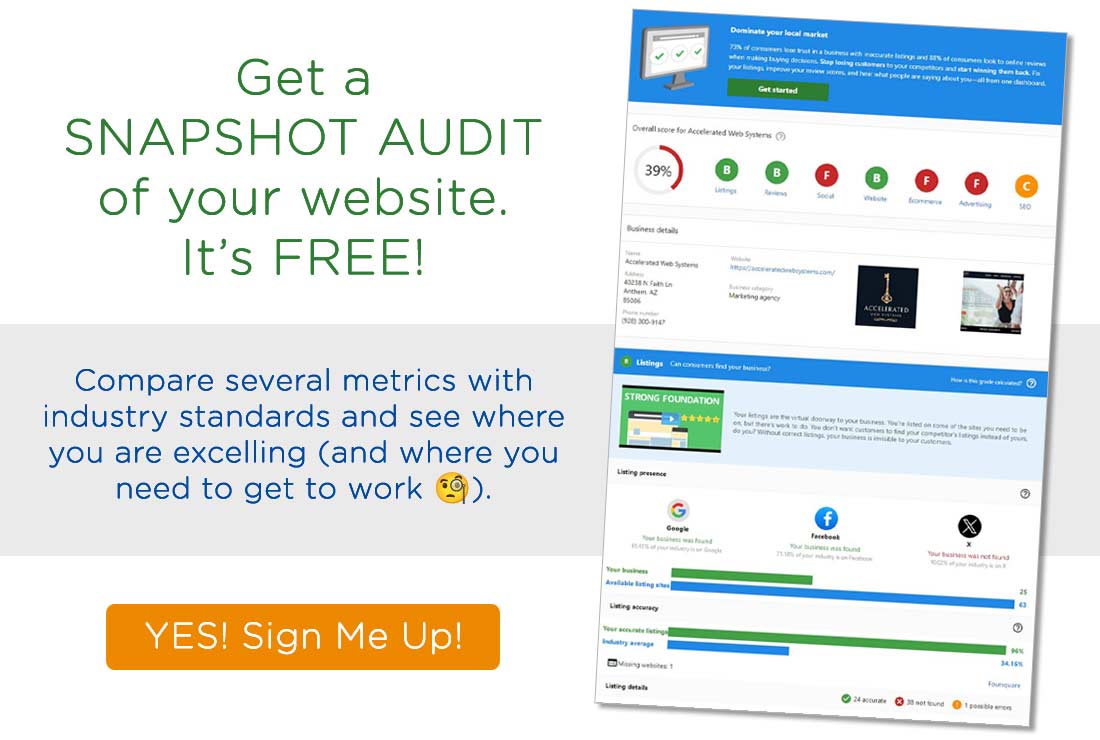SEO Metrics – Making Sense of the Data
Understanding the performance of your website and SEO efforts is important for business success. However, many business owners find SEO metrics confusing and overwhelming.
Knowing which metrics to focus on can help you make smarter decisions and see a better return on investment.
Here are the top 10 SEO metrics that every business owner should track to ensure long-term success:
1. Organic Traffic
Organic traffic is the number of visitors that come to your website through unpaid search results. This metric is crucial because it shows how well your SEO efforts are attracting potential customers. An increase in organic traffic typically means your website is ranking higher on search engines and reaching a larger audience.
How to Track It: Google Analytics shows your organic traffic under the “Acquisition” section.
2. Keyword Rankings
Tracking your keyword rankings helps you understand which search terms are driving traffic to your site. It also allows you to measure your success in achieving higher visibility for the keywords that matter most to your business.
How to Track It: Tools like SEMrush, Ahrefs, or Google Search Console can provide insights into your keyword performance.
3. Click-Through Rate (CTR)
CTR is the percentage of people who click on your listing after seeing it in the search results. A high CTR means your title tags and meta descriptions are compelling and relevant, encouraging users to visit your site.
How to Track It: Google Search Console shows CTR for each keyword and landing page under the “Performance” section.
![]()
4. Bounce Rate
Bounce rate measures the percentage of visitors who leave your site after viewing only one page. A high bounce rate could indicate that your website content isn’t relevant to what users are searching for or that your site’s user experience needs improvement.
How to Track It: Google Analytics provides bounce rate data in the “Audience” and “Behavior” sections.
5. Average Session Duration
This metric tells you how long visitors are staying on your site. A longer average session duration generally indicates that users find your content valuable and engaging.
How to Track It: You can find this data in Google Analytics under “Audience > Overview.”
6. Pages Per Session
Pages per session indicates how many pages a visitor views in a single session. This metric is helpful for understanding user engagement and navigation patterns on your website.
How to Track It: Google Analytics provides this data in the “Behavior > Overview” section.
7. Conversion Rate
Conversion rate measures the percentage of website visitors who complete a desired action, such as filling out a contact form or making a purchase. This is one of the most critical metrics as it directly ties SEO efforts to business outcomes.
How to Track It: Set up conversion tracking in Google Analytics by defining “Goals” or use eCommerce tracking for purchase data.
8. Backlinks and Referring Domains
Backlinks are individual links on other websites pointing to your site. The quality and quantity of the links can greatly influence your search engine rankings.
Referring Domains are the unique websites that provide those backlinks. If one website links to you multiple times, it still counts as one referring domain. Tracking referring domains helps you see how many unique sites are linking to you, which is a key indicator of your link-building success.
How to Track It: Use tools like Ahrefs, Moz, or SEMrush to monitor your backlink profile and referring domains.
9. Core Web Vitals
Core Web Vitals are a set of metrics that measure the loading performance, interactivity, and visual stability of your site. These metrics are crucial for user experience and are a ranking factor in Google’s algorithm.
How to Track It: Check Core Web Vitals in Google Search Console for more detailed information.
10. Page Load Time
Page load time affects user experience and SEO rankings. A slow-loading page can increase bounce rates and lower your search rankings. Keeping your load times under three seconds is ideal.
How to Track It: Use tools like GTmetrix to measure and optimize page load times.
Why These Metrics Matter
Tracking these SEO metrics helps you understand the effectiveness of your strategies, identify areas for improvement, and make data-driven decisions. By focusing on these key performance indicators, you can not only boost your search engine rankings but also improve user experience and drive more conversions.
Tips for Effective SEO Tracking
- Set Clear Goals: Determine what you want to achieve with your SEO efforts, such as increasing organic traffic by 20% in six months or improving conversion rates by 10% in a quarter.
- Use the Right Tools: Utilize SEO tools like Google Analytics, Google Search Console, SEMrush, and Ahrefs to gather accurate data.
- Monitor Regularly: Keep an eye on your metrics weekly or monthly to identify trends and make timely adjustments to your strategy.
- Focus on What Matters: Avoid getting bogged down by vanity metrics. Concentrate on metrics that align with your business goals and have a direct impact on your bottom line.
Interpreting website statistics can be challenging as data fluctuates daily due to various factors. These fluctuations are common and can be influenced by changes in user behavior, seasonal trends, marketing campaigns, algorithm updates, or even technical issues on your website.
For example, a sudden spike in traffic could be attributed to a successful social media post or email campaign, while a drop might result from a Google algorithm change or decreased search visibility.
Additionally, different analytical programs, like Google Analytics, Ahrefs, and SEMrush, collect and interpret data uniquely, resulting in discrepancies across platforms.
We recommend looking at data over longer periods and in context rather than making decisions based on daily variations alone. A professional can help you make sense of these fluctuations and provide valuable insights to guide your business strategy effectively.
Ready to Level Up Your SEO Strategy?
Tracking the right SEO metrics is essential for business growth, but it can be time-consuming and complex. If you need help setting up a comprehensive tracking system or optimizing your site for better results, we’re here to help.
Click here for more information about our SEO Services ⇒
Schedule an intro call with Accelerated Web Systems today, and let’s take your business to new heights with effective, data-driven SEO strategies!
Why choose Accelerated Web Systems for SEO?
✔️ We believe in nuance, alignment, and consistent, relentless work. You are not just a number with us.
✔️ We dive deep into your unique business proposition, your ideal client persona, and your revenue goals.
✔️ We evaluate your current situation in the search engines from many angles to establish a benchmark before we start. Keywords, competition, reviews, Google properties, website speed, and website conversion rates all play a part in a successful SEO campaign.
✔️ We research, strategize, plan, and execute for short and long-term success.
✔️ You can count on our SEO services being comprehensive, clever, creative, and competitive.
✔️ We’ve been doing SEO and web design for over 20 years. We know what it takes to rank!



